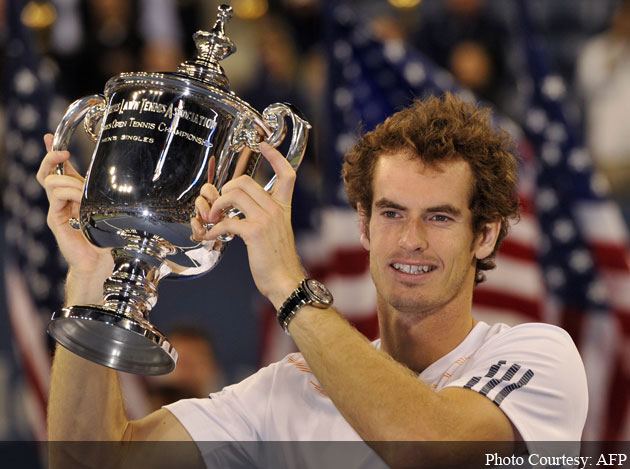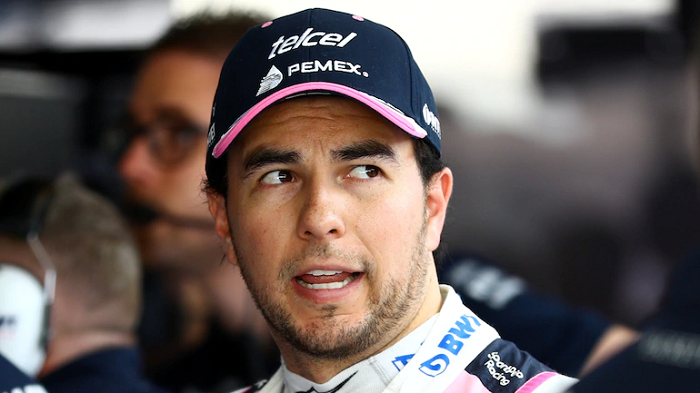
New York, September 11: As he stood on the precipice of history, three games from becoming the first British man to win a Grand Slam tournament since 1936, Andy Murray scowled.
His expression matched the windy weather for this United States Open finals on Monday night, the nearly five hours that it lasted and the weight of seven decades worth of expectations placed on Murray the minute his career began.
Murray complained his legs felt like jelly. Novak Djokovic, the defending champion, kept coming, his shoes squeaking, until after 306 points each man had won exactly half. Murray stared down fatigue and history and wind and doubt, elevating his game to a place it had never been before.
When the match ended, after Djokovic's return sailed long, Murray covered his face with this hands, his wild 7-6 (10), 7-5, 2-6, 3-6, 6-2 triumph complete.
Djokovic met Murray at the net. They hugged. Murray walked from their embrace in a daze, with one hand or both hands covering his mouth. It was as if he could not believe what happened, like the emotions were too fresh, too raw.
The crowd at Arthur Ashe Stadium rose and roared for Murray, the perennial loser turned sentimental favorite turned, finally, into a Grand Slam winner. It was past 2 a.m. in Scotland, Murray's home country, where surely the celebration raged, bagpipes playing well into the night.
"I don't know how I came through in the end," Murray said in a television interview on court. "I just managed to get through."
Murray, the latest, greatest hope of a nation had known the statistics as well as anyone, knew the length of the drought and his own failure in four previous Grand Slam finals, including at Wimbledon earlier this summer. He knew his coach, Ivan Lendl, also lost his first four major championship finals and still ended up with eight Slam singles trophies.
Murray had provided his homeland with an emphatic exclamation point in his magical summer: runner-up at Wimbledon, Olympic gold medalist and now United States Open champ.
"I want to congratulate Andy for his first Grand Slam," Djokovic said during the post-match ceremony. "He absolutely deserves it."
The final, the first major tournament final without Roger Federer or Rafael Nadal since Djokovic and Murray played for the Australian Open championship in 2011, pitted old rivals, both 25 years old, born one week apart. They first played each other at age 11.
Djokovic said Murray won that first contest. Djokovic, though, triumphed in their first two Grand Slam tournaments. Murray, though, emerged victorious in their most recent meeting, in the semifinals of the Olympics, a tournament Murray ultimately won.
Even though he led their personal rivalry, 8-6, Djokovic said of their latest meeting "there is no clear favorite."
At the outset, on another wind-whipped afternoon in Queens, one that felt more like British Open weather, the conditions appeared to favor Murray. After all, he played the semifinals Saturday against Tomas Berdych under the most extreme conditions of his career, while Djokovic stumbled in the same wind tunnel against David Ferrer only to regain his footing when play resumed on Sunday.
In the finals, the wind again a factor, neither player found rhythm early. In fact, for the first five games, whichever player hit with the wind at his back lost. One rally consisted of 54 shots, many of them sliced back or pushed over the net.
The first set tiebreak unfolded the same way the match did, unpredictably, back and forth, up and down. Murray trailed initially, only to scratch his way ahead, and he managed not only one set point but six.
Each set point proved its own adventure. On one, Murray short-armed a backhand approach shot into the net. On another, he badly shanked a forehand. On the final one, he seemed displeased with a let call, then unleashed a furious serve that Djokovic failed to return.
The first set lasted nearly 90 minutes. Murray won the set, 7-6 and the tiebreak, 12-10.
That seemed to rattle Djokovic, who started the second set with a flurry of unforced errors that prompted several conversations - with himself. Murray broke Djokovic in the first game and broke him again in the third and before Djokovic could blink, Murray led, 4-0.
All of Great Britain - along with the pro-Murray crowd at Arthur Ashe Stadium - could dare to dream at that point. The last time a British man won a Grand Slam tournament, Fred Perry was the champion, not the name behind a clothing line, in 1936.
Straight Sets
The drought would not end swiftly, or easily, or without much consternation for Murray hopefuls. Before the match concluded, Murray added greatly to the British angst. Djokovic crept back into the contest, just when his chances seemed most dim. His lob over Murray's head tied the second set score at 5-5.
Again, Murray recovered. Again, he pelted Djokovic with a smorgasbord of shots - topspin forehands and sliced backhands, with net charges and drop shots. On set point, Djokovic missed a forehand wide.
Murray did not dare let out too much emotion, even if every person in the building could feel the history within his grasp. In his previous four Grand Slam finals, Murray won one set. Not one set in each match. One set, period. Here, he led two sets to none.
A nation held its breath.
Throughout the past two weeks, when Djokovic cruised into the semifinals without losing a set, Murray advanced on shakier footing. He looked unbeatable in some matches, very beatable in others.
Regardless, he continued to insist that his Olympic victory relieved an enormous amount of pressure from his shoulders, from years of questions about his failure to win a Slam. He acknowledged he "maybe had less doubts about myself and my place in the game" afterward. His last goal: to win a major tournament.
The stars seemed to align in New York. Nadal withdrew before the Open started, citing a knee injury. And while Murray fell in Federer's half of the bracket, Berdych upset Federer in the quarterfinals. Only Djokovic stood in Murray's way, and even Djokovic said Murray increased his aggression over the summer, became "one of the most complete players in the world."
In the third set, when Murray seemed on the verge of a complete victory, Djokovic, like a sleeping bear poked with a stick, awakened. He evened the set at 1-1 with a backhand volley drop shot winner, and he celebrated so loudly, screamed for so long, it seemed like he had won the match.
That energy carried over. Djokovic changed shoes. Murray complained his legs felt like jelly. Djokovic blitzed Murray and captured the set, 6-2, with an overhead smash.
Djokovic won the first game of the fourth set, too, and it was clear momentum had shifted in his direction. "Jelly!" Murray screamed again, and soon enough "jelly" was trending on Twitter, worldwide.
In the fourth set, the pace increased, the rallies lasted longer, and the Open crowd continued to rise to its feet, celebrating the level of play with standing ovations. Murray kept it close. Down a service break, at 3-2, he again put one shot so far out of Djokovic's reach that Djokovic ended up on the ground. ESPN added another tally to its "knockdown" counter, which surely pleased Murray, an avid boxing fan.
Still, Djokovic held on to win that game and the fourth set, 6-3, too. Murray, meanwhile, continued to complain about his legs and how they failed him.
After four sets and four hours, the two were deadlocked, which set the stage for the final set dramatics.






Comments
Add new comment